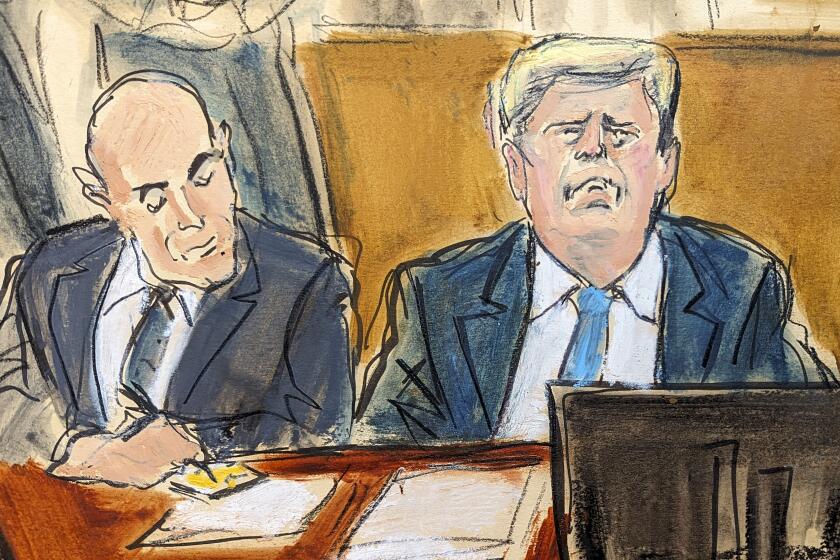Sending a Message to Drug Maker
Internist Steven Krems and his partners at Access Medical Group have a prescription for drug giant GlaxoSmithKline: Take a timeout and don’t call us in the morning.
The Marina del Rey physicians are angry about Glaxo’s decision to stop supplying Canadian pharmacies that sell medicines to Americans at bargain prices. So they decided to add their own protest to a boycott of Glaxo products already underway.
If Glaxo does not reverse its decision by Monday, the doctors say, the British company’s sales representatives will be shown the door when they come hawking its drugs. The seven-doctor group, specializing in internal medicine, also vowed to switch patients’ medications to other brands when they can safely do so.
“There are so many things that you feel helpless to do anything about,” Krems said this week. “Well, this is something we can do something about.”
Glaxo last month stopped supplying Canadian warehouses and pharmacies that sell their medicines to Americans more cheaply than the drugs are available in the U.S. Most of the commerce is done through Internet-based pharmacies operated by Canadian druggists.
Glaxo said the cross-border sales are not regulated and could jeopardize patient safety. Critics have characterized the action as a move to protect profits.
Drugs purchased in Canada may cost up to 80% less than those bought in the U.S. because of government price controls in Canada and the strong American dollar.
Krems said he and his partners were “appalled” by Glaxo’s stance. They drafted a letter informing Glaxo’s U.S. Chief Executive Chris Viehbacher of their intentions.
“We don’t really want to do this,” said Krems, 40. “We’ve developed relationships with these reps. But they are the messenger. We are sending a message back: ‘Tell your supervisors that this is not acceptable.’ ”
Another doctor in the group said he would try to recruit other physicians to the cause. “We’ll talk to them at meetings,” said Irving Sobel, 49. “We’d like to get a little wave going across Los Angeles.”
Glaxo spokeswoman Nancy Pekarek said doctors occasionally call or write to the company to ask about the ban. Once she explains the company’s position, they “generally have not had a problem with it,” she said.
Pekarek suggested that concerned citizens contact their elected representatives and ask them to push for a Medicare drug benefit. “The solution for this issue is not to send seniors to Canada,” she said.
Hundreds of seniors groups, human-rights organizations and Canadian pharmacists banded together two weeks ago to boycott Glaxo’s over-the-counter products, including Tums antacids and Contac cold medicines. Seniors are hit the hardest by Glaxo’s position, activists say, because they are the largest U.S. buyers of prescription drugs.
Their protest goes to San Francisco today. Members of the San Francisco Senior Action Network, the Grey Panthers and the Greenlining Institute, a consumer group, plan to demonstrate outside the Moscone Convention Center.
While Glaxo holds a corporate meeting inside, protesters plan to break open a pinata filled with Tums and toss other products into a trash can to highlight their “Tums Down!” campaign, organizers said.
While activists say the boycott is spreading quickly, Pekarek said sales figures so far have not shown a noticeable decline.
One of the Marina del Rey doctors, Jonathan Rand, 51, said he has been directing patients to Canadian pharmacies for several months. Rand said he began looking into alternatives when the drug prices started to escalate dramatically in recent years.
The cost of many common drugs that hovered near $1 a day for many years now is $3 or $4, he said.
“We don’t like what Glaxo is doing to our poor, elderly patients,” he said. “It’s time to take a stand.”
More to Read
Start your day right
Sign up for Essential California for news, features and recommendations from the L.A. Times and beyond in your inbox six days a week.
You may occasionally receive promotional content from the Los Angeles Times.







